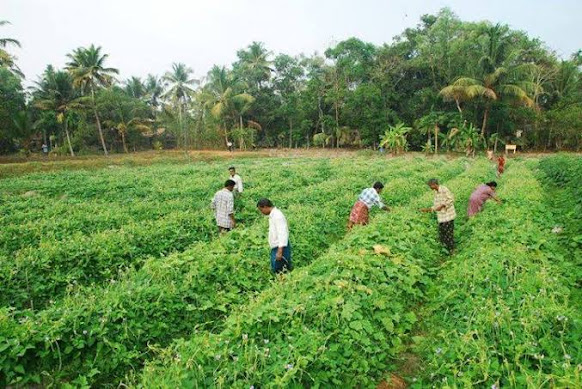Natural Farming
Natural farming is an ecological farming approach established by Masanobu Fukuoka (1913–2008), a Japanese farmer and philosopher, introduced in his 1975 book-The One-Straw Revolution. Natural farming is a system where the laws of nature are applied to agricultural practices. This method works along with the natural biodiversity of each farmed area, encouraging the complexity of living organisms, both plants, and animals that shape each particular ecosystem to thrive along with food plants.
- It is also referred to as “the Fukuoka Method”, “the natural way of farming” or “do-nothing farming“. The title refers not to lack of effort, but to the avoidance of manufactured inputs and equipment.
- Natural farming is a closed system, one that demands no human-supplied inputs and mimics nature.
- Natural and organic both are chemical free and more or less poison free farming methods.
- Both systems discourage farmers from using any chemical fertilizers, pesticides on plants and in all agricultural practices.
- Both farming methods encourage farmers to use local breeds of seeds, and native varieties of vegetables, grains, pulses and other crops.
- Organic and natural farming methods promote homemade pest control methods.
Difference between Natural Farming and Organic Farming
- In organic farming, organic fertilizers and manures like compost, vermicompost, cow dung manure are used and added to farmlands from external sources.
- In natural farming, neither chemical nor organic fertilizers are added to the soil. In fact, no external fertilizers are added to soil or given to plants whatsoever.
- In natural farming, decomposition of organic matter by microbes and earthworms is encouraged right on the soil surface itself, which gradually adds nutrition in the soil, over the period.
- Organic farming still requires basic agro practices like plowing, tilting, mixing of manures, weeding to be performed.
- In natural farming there is no plowing, no tilting of soil and no fertilizers, and no weeding is done just the way it would be in natural ecosystems.
- Organic farming is still expensive due to the requirement of bulk manures, and it has an ecological impact on surrounding environments; whereas, natural agriculture is an extremely low-cost farming method, completely molding with local biodiversity.
- There are many working models of natural farming all over the world, the zero budget natural farming (ZBNF) is the most popular model in India. This comprehensive, natural, and spiritual farming system is developed by Subhash Palekar

Comments
Post a Comment